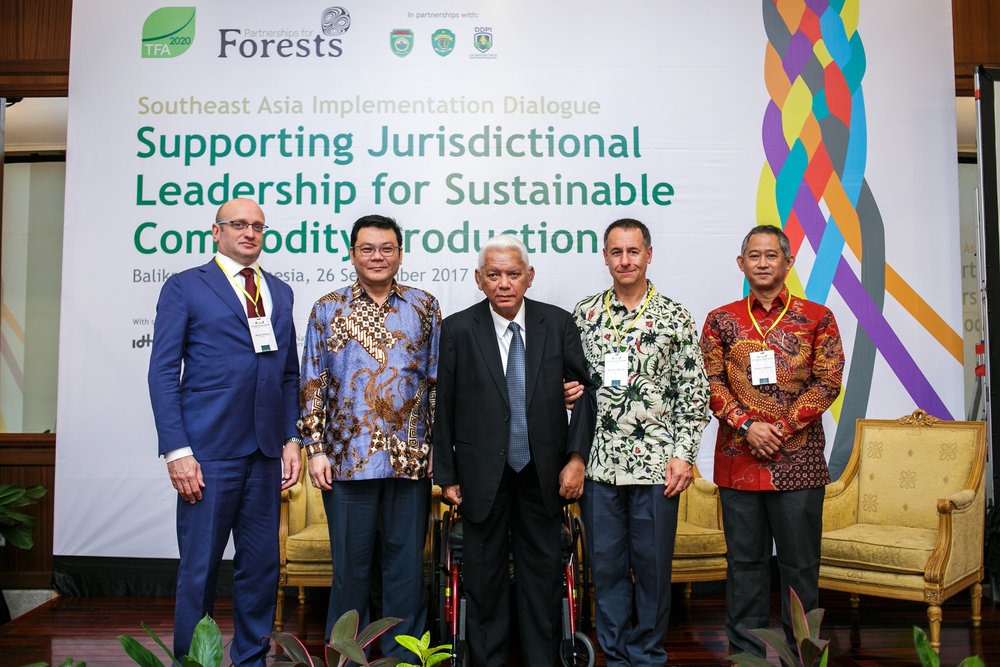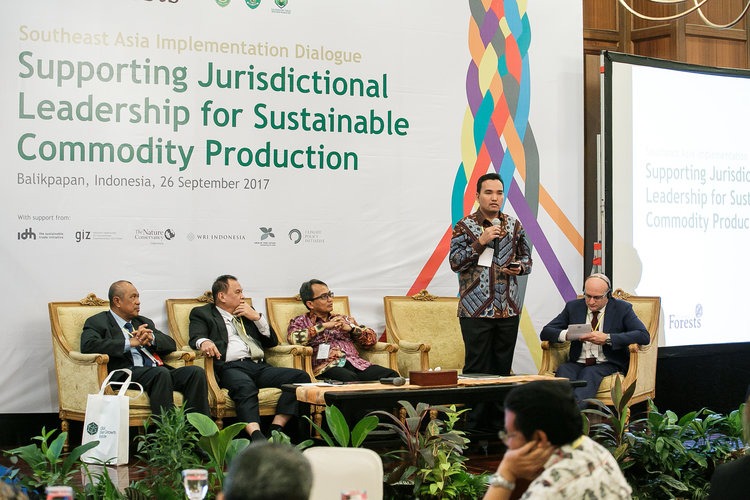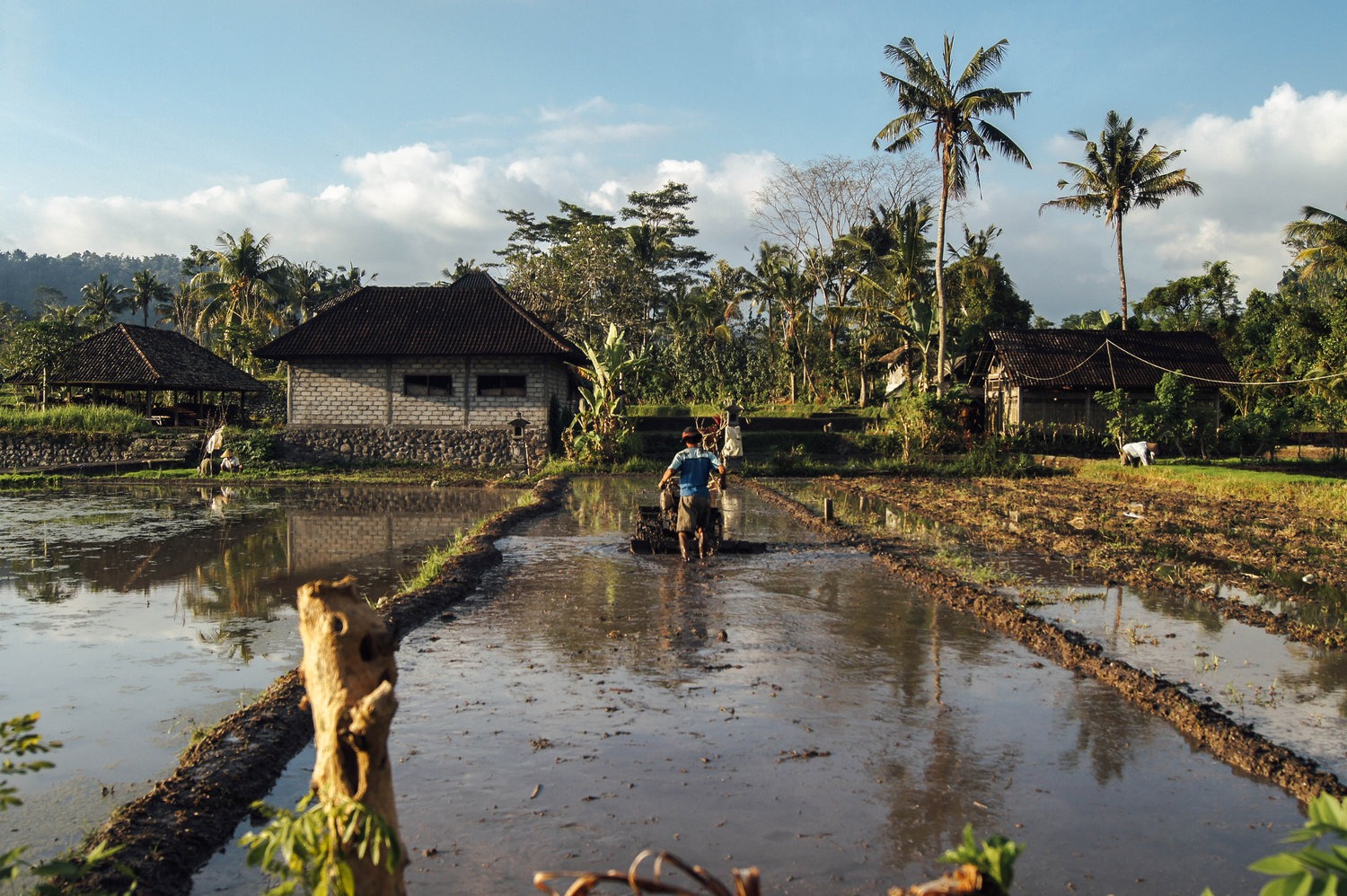On 26 September 2017, Tropical Forests Alliance 2020 (TFA 2020) and Partnerships for Forests (P4F)* co-hosted the first Southeast Asia Implementation Dialogue alongside the Governors’ Climate and Forests Task Force Annual Meeting. Around 100 representatives of the government, private companies, donors agencies, civil societies, financial institutions attended the dialogue held in Balikpapan, East Kalimantan, Indonesia. The goal of the Implementation Dialogue is to catalyse action-oriented partnerships and collaboration initiatives to reduce deforestation and carbon emissions.

From left to right: Marco Albani, Director of Tropical Forests Alliance 2020, Nazir Foead, Head of Indonesia Peatland Restoration Agency, Awang Faroek, Governor of East Kalimantan, Indonesia, Bruce Cabarle, Team Leader Partnerships for Forests, and Erwin Widodo, Southeast Asia Regional Coordinator of TFA 2020
After the Paris Agreement, a number of ambitious forest-related projects from governments, donors, and private sector companies have been launched to reduce deforestation and carbon emissions. TFA 2020 conducted an assessment of these jurisdictional initiatives and has concluded that they are material to achieving the sustainable production of key forest commodities. TFA 2020 intends to support the jurisdictional approach through a series of regional “Implementation Dialogues” designed to catalyse collaboration and partnerships to support jurisdictions with the implementation of their plans.
Implementation dialogues are a key enabler to accelerate jurisdictional approaches in South East Asia. Bringing together jurisdictions in forest countries, the implementation dialogues aim to:
- Facilitate discussion on how public-private collaboration can help realise shared objectives of deforestation-free commodity supply chains at the jurisdictional level.
- Allow the jurisdictions to present specific opportunities for collaboration to the private sector, financial institutions, civil society and other organizations, who in turn can respond to these opportunities with the broader goal of supporting the jurisdictions with implementation.
- Provide targeted support to those jurisdictions where progress is already underway, with the intention to help accelerate those existing efforts.
- Help identify synergies between the supply chain and jurisdictional approaches, providing private sector and market incentives to accelerate the agenda and engage more jurisdictions

During the event, Beni Hernedi, Vice Head of District of Musi Banyuasi, South Sumatra, Indonesia talks about potential partnerships emerging with the private sector operating in his district, with the aim of addressing local green economic challenges and achieve a deforestation-free region. Apart from South Sumatra, East Kalimantan province also communicated their jurisdictional plan and presented specific opportunities for public-private partnerships.
* Partnerships for Forests (P4F) is an incubator that aims to demonstrate that economically viable opportunities for sustainable tropical land-use can be developed in a way that achieves both environmental (i.e. forest protection), social (i.e. good, diverse jobs) and economic (i.e. improved business cases) goals through public-private-people partnerships. P4F is implemented by Palladium, McKinsey & Company and SYSTEMIQ on behalf of the Department for International Development (DFID). SYSTEMIQ is implementing P4F in South East Asia and is working with a portfolio of sustainable projects and landscapes in key forested jurisdictions of South East Asia. As part of our mandate, we are also facilitating sustainable land use dialogues and other learning events. SYSTEMIQ has a local office in Indonesia of currently 12 people, particularly to support the sustainable land use agenda.

